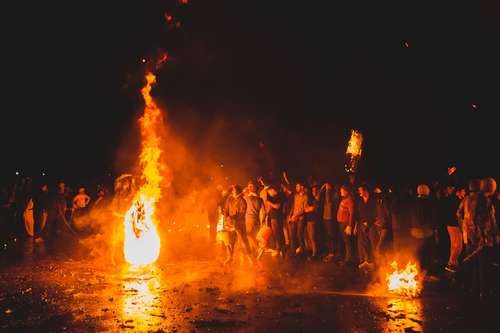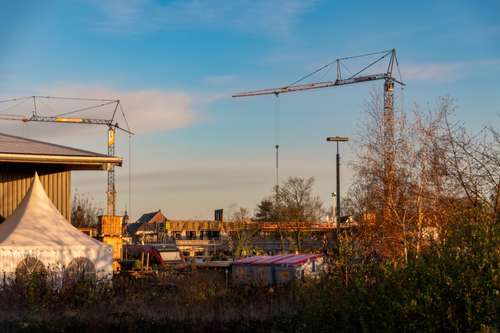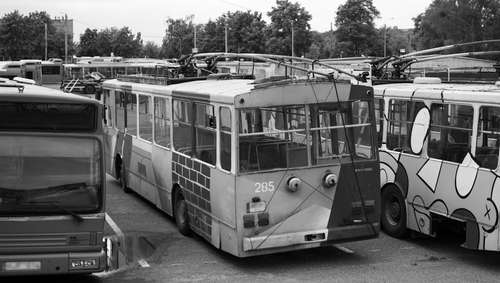The debate over Londonderry bonfires has been heating up just as fiercely as the flames themselves. In recent times, these bonfires have come under scrutiny largely due to their association with political and sectarian tensions. Many locals argue that what once was a cultural expression now sparks community tensions and fuels ongoing disputes.
There’s a growing chorus of voices expressing concern—voices like those of the Catholic Bishop of Derry and a former detective—warning that these events are becoming less about heritage celebrations and more about divisive politics. Even First Minister Michelle O'Neill has warned about the negative impact on community relations and shared a desire to steer the future away from such controversial bonfire disputes.
In many ways, these bonfires have evolved into more than just a display of light and fire; they have become a battleground where history and modern political strife collide. But isn’t it interesting how a cultural event can stir so much controversy? Sometimes, what we see as harmless tradition can also be a flashpoint for deeper, unresolved issues.
Controversial Bonfires and Community Tensions
When we talk about Londonderry bonfires, we are not merely discussing a local event but a phenomenon that encapsulates decades of regional conflicts and cultural expression. The bonfires, steeped in historical significance, have now become a lightning rod for community tensions in Northern Ireland bonfires events.
Many community members feel that these bonfires have shifted away from celebrating local traditions to becoming symbols of regional conflict. One cannot help but wonder: when does a cultural celebration transform into a source of division? For some, the relentless display of flames mirrors the heated emotions of the past. These events, once cherished as heritage celebrations, now face growing criticism due to perceived favoritism toward political narratives.
The intersection of local traditions and modern public opinion has created a fertile ground for heated debates. Some see the bonfires as a way to preserve an essential part of Londonderry culture, while others view them as echo chambers reinforcing historical enmity. The resulting bonfire disputes have only widened the gap between different community sections, thereby igniting a contentious dialogue on cultural expression and public safety.
Impact on Local Traditions and Public Safety
The conversation around bonfires in Londonderry is not just about cultural expression; it also involves public safety and environmental impact. A few years back, the intensity of some bonfires spurred heated public debates, with many residents voicing concerns about fire safety concerns and the potential for environmental hazards.
In fact, several locals have noted that the combination of large flames and unpredictable winds has, on occasion, posed a genuine threat to nearby homes and public spaces. This isn’t just an issue for those who cherish their heritage; it directly affects everyone’s well-being in the area. One might ask, when does a tradition become too risky to uphold?
Even amid the festive cheer, there is an undercurrent of anxiety. Authorities are increasingly pressured to implement stricter bonfire management practices, ensuring that public safety is not compromised. Observing these events unfold has reminded many that cultural events must balance celebration with caution. In this light, bonfire disputes aren’t just about differing cultural interpretations but also about the practicality of maintaining safe, controlled environments during large-scale celebrations.
The ongoing dialogue reflects an uneasy compromise between honoring local traditions and addressing modern safety requirements. These challenges cast a spotlight on how traditions must adapt to contemporary concerns—a theme that plays out not only in Londonderry bonfires but in cultural celebrations everywhere.
Political Criticism and Calls for Change
Political figures have not stayed silent on the matter. In Londonderry, high-profile criticisms, including those from the Catholic Bishop of Derry and a well-known former detective, have thrust the bonfire disputes into public view. Their remarks underscore a concern that these events are not only symbolic of historical conflicts but also a catalyst for renewed sectarian tensions.
Political leaders have been quick to emphasize how such bonfires contribute to a polarized political landscape. For example, First Minister Michelle O'Neill has openly expressed her desire for a future free from these divisive bonfires, championing community relations over symbolic gestures. The passion in her stance resonates with many who long for a break in long-standing disputes.
While critics argue that bonfires are a cherished part of Londonderry culture, there is an equally compelling argument that these events have grown too contentious for modern society. When traditions are weighed against public opinion and the pragmatic need for peace, it becomes clear that the historical significance of these bonfires is entangled with the very real cuts of regional conflicts. It is a conversation that doesn’t offer easy answers, as opinions remain deeply split.
Through the lens of these controversies, we see how a once-celebratory custom could evolve into a symbol of broader societal issues. The political criticism, much like the flickering flames of the bonfires, serves as a stark reminder that history and modern challenges are in constant conversation—and sometimes, in conflict.
The Road Ahead: Managing Future Celebrations
Looking forward, managing future Londonderry events will require a delicate balance of tradition, safety, and inclusiveness. As the debate rages on, there are calls for improved bonfire management and more robust dialogue between community groups. It’s like trying to blend ingredients to create the perfect recipe: you need the right balance of heritage and modern safeguards.
Some locals propose structured guidelines to ensure these bonfires bring communities together rather than tear them apart. They envision celebrations where cultural events are redefined to embrace both tradition and progress. It’s a vision where environmental impact is minimized, community tensions are reduced, and public safety is assured.
One could say that these discussions mirror larger conversations about Northern Ireland bonfires and other similar events around the region. The future, many believe, lies in reevaluating how these celebrations are orchestrated, highlighting the need for a new approach that respects both history and the multiethnic fabric of the community.
As we peer into the future, it remains to be seen whether these calls for change will be heeded. Will tradition yield to a more inclusive vision of cultural expression? Only time can tell. The dialogue continues, with every eligible community member contributing to what might someday be seen as a landmark turning point in Londonderry culture.
In conclusion, the contentious nature of Londonderry bonfires encapsulates the complex interplay between heritage and modernity. From public safety and environmental concerns to the deep-rooted political criticisms, every spark of debate reflects larger societal dynamics. As debates over these controversial bonfires persist, it becomes crucial to balance historical significance with pragmatic approaches to community relations and bonfire management. This conversation, marked by both passion and pragmatism, serves as a reminder that traditions are not stagnant—they evolve with the people they represent. The hope for a future where community ties are strengthened rather than divided could still be within reach if lessons are learned from the past.




